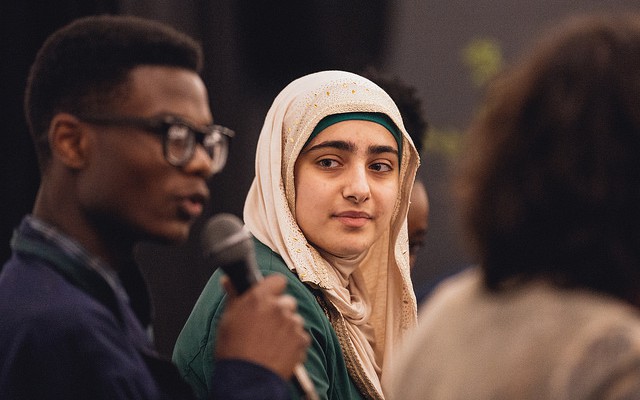Supporting scholars seeking a new intellectual home – what can we do?
This article first appeared on The Research Whisperer, and is a collaborative effort by members of the Global Young Academy, the Young Academy of Scotland and Research Whisperer. It was developed by Dr Eva Alisic, Dr S. Karly Kehoe, Debora Kayembe, Dr Shawki Al-Dubaee, and Jonathan O’Donnell.
Academic solidarity is a core value shared by researchers all over the world. There is a recognition of the need to support, challenge and – when required – protect each other, our disciplinary integrity, and our fundamental investigative principles.
War and conflict disrupt (and sometimes destroy) societies. As part of that process, academics can be specifically targeted. In Free to Think 2017, the organisation Scholars at Risk analysed 257 reported attacks on higher education communities in 35 countries over a period of 12 months. Along with fellow citizens, academics often need to flee conflict zones.
As researchers already working in a certain location, we can offer significant support to fellow academics who are refugees. The ways of getting involved vary from minor and short-term initiatives to substantial and more long-term programs.
The list that follows is by no means complete, but it serves as an idea generator to help build a diverse range of activity. A challenge at the start of any initiative is finding out who the at-risk or refugee academics in your community are, and to make it easier for them to find colleagues in universities or local scholarly associations.
Possible short-term initiatives include:
- assisting in providing university library access;
- assisting in obtaining affiliation as a research associate or fellow;
- assisting in obtaining a university email address;
- supporting in writing a country-appropriate curriculum vitae (CV) or a grant application;
- advocating for the establishment of support systems by writing letters to decision-makers in the university or professional society.
Possible long-term initiatives include:
- offering standing invitations to departmental seminars or invitations to give papers in their research fields;
- starting a mentorship program;
- starting a collaborative project which helps in creating a research network;
- negotiate, with your university, the establishment of a visiting fellowship that includes a workspace;
- including as a member of a supervisory team for PhD students;
- providing a job (temporary or full-time);
- allocating membership spaces in your national Academy;
- waiving or covering membership fees for professional societies;
- providing a space for a club or association that allows at-risk or refugee academic to meet other people with similar interests or academic prospects.
In countries where at-risk or refugee academics are permitted to undertake paid employment, having their qualifications recognised is important. It is difficult when people who have already achieved postgraduate qualifications in their home countries are forced to attend undergraduate courses in their disciplines in a host country. Since research councils do not tend to offer support to those not working in a university, it would be helpful if national academies or universities offered some kind of research funding support for at-risk or refugee academics to enable them to keep going with their work and have a better chance at getting research-related work.
It will take sustained commitment and energy – and it will take understanding and a degree of cultural awareness.
If you are in contact with at-risk or refugee academics, seek their input and involve them in the design process of an activity. Given that being at-risk or possessing the status of refugee is their lived experience right now, perhaps for many years to come, these academics have invaluable insight that you can use to help. The short film ‘Science in Exile’ also gives several scholars at-risk a voice (currently available for events; eventually it will be available online).
Don’t forget that, in your country, you possess specific and hard-to-access knowledge about how the academic environment works, what the performance expectations are for the various levels, from the PhD through to the professoriate, and how career portfolios are constructed. Managing expectations about what is and isn’t within your power to deliver is essential though – the last thing you want to do is disappoint a vulnerable colleague.
For more information on some current initiatives and resources, check out these great links:
- Dutch Young Academy’s Buddy Program.
- Young Academy of Scotland’s At-Risk Academic and Refugee membership initiative.
- The Philip Schwartz Initiative of the Alexander von Humboldt Foundation.
- The World Academy of Sciences’ Refugee Scientists: Transnational Resources.
- The European Union Joint Research Centre’s Mentorship Program.
- European Union Science Hub’s Knowledge Centre on Migration and Demography.
- Council for At-Risk Academics’ (CARA’s) Fellowship Programme.
- European Union EURAXESS website regarding jobs for refugees.
- Institute of International Education (IIE) Scholar Rescue Fund.
Some of these organisations and programs may also be able to advise on additional ways you can help refugee scholars in your local community.
Could you, or your institution, support scholars in finding new intellectual homes?
